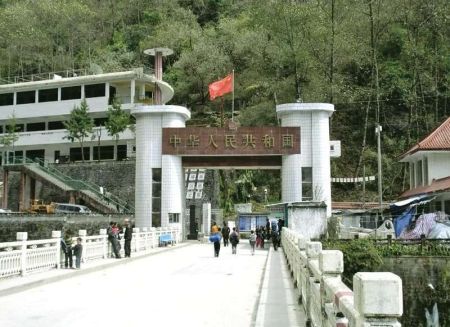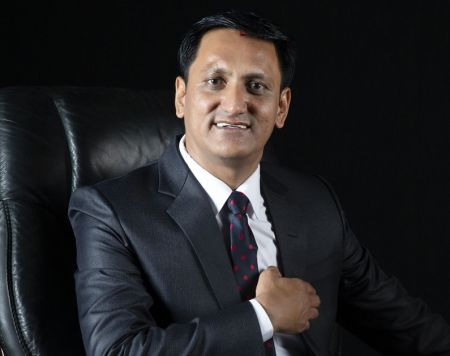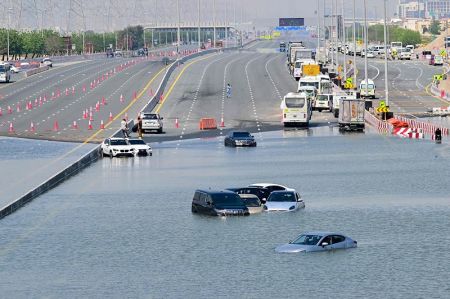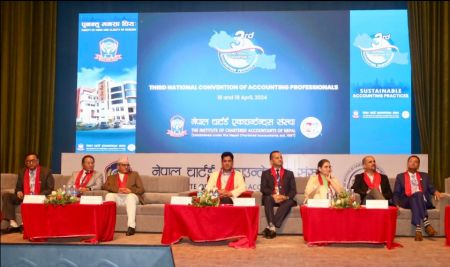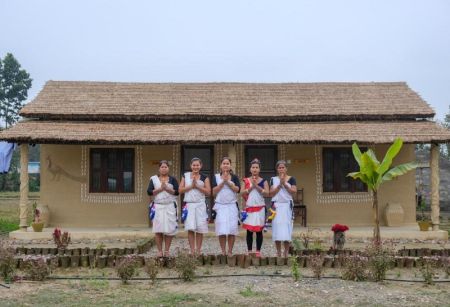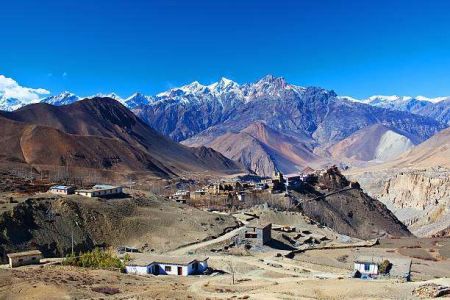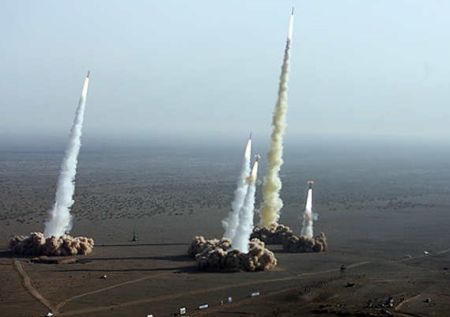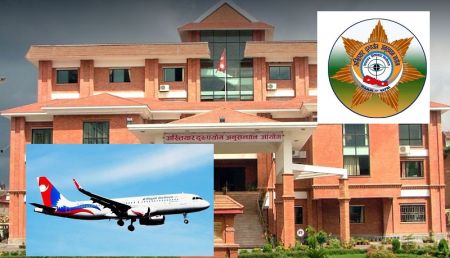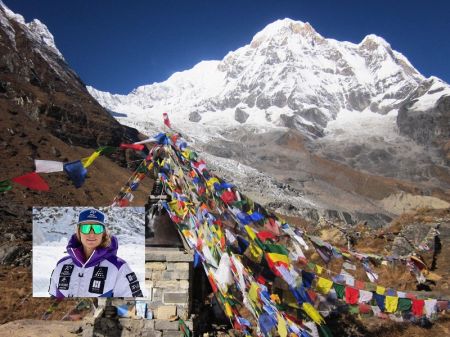 Eugene, the second largest city of Oregan state of the US, has a sister relationship with Kathmandu. The Sister City relationship with Kathmandu was established in 1975 by Mayors Les Anderson of Eugene and Babu Ram Regmi of Kathmandu. Following the agreement of sister cities, two teams of the representatives from Eugene and three teams from Nepal have already visited each other’s cities. Eugene has been supporting community development, education, public health and cultural heritage projects and programmes in Nepal. Now Eugene is going to support Nepal on the waste management upon the initiative Dennis Ramsey, President of Eugene Kathmandu Sister City Association (EKSCA). Ramsay says that akin to Eugene, Nepal can also adopt ‘Zero Emission Technology’ in a low investment which can be convenient as well as effective. Ramsey sat with Modnath Dhakal and Sagar Ghimire of New Business Age to talk about the waste management system of Kathmandu, its weakness and new strategies. Excerpts:
Eugene, the second largest city of Oregan state of the US, has a sister relationship with Kathmandu. The Sister City relationship with Kathmandu was established in 1975 by Mayors Les Anderson of Eugene and Babu Ram Regmi of Kathmandu. Following the agreement of sister cities, two teams of the representatives from Eugene and three teams from Nepal have already visited each other’s cities. Eugene has been supporting community development, education, public health and cultural heritage projects and programmes in Nepal. Now Eugene is going to support Nepal on the waste management upon the initiative Dennis Ramsey, President of Eugene Kathmandu Sister City Association (EKSCA). Ramsay says that akin to Eugene, Nepal can also adopt ‘Zero Emission Technology’ in a low investment which can be convenient as well as effective. Ramsey sat with Modnath Dhakal and Sagar Ghimire of New Business Age to talk about the waste management system of Kathmandu, its weakness and new strategies. Excerpts:
Can you please highlight your and Eugene’s relationship with Kathmandu?
It has been 38 years since Eugene-Kathmandu Sister City Association (EKSCA) was established. As the president of this association and in the last 10 years, I have tried strengthening this relation by organizing various programs. The ties have now also expanded to the various departments of these two cities. Hem Sharma Pokharel, Former Mayor of Kathmandu Municapilty, during his visit to Eugene, has sought help for the waste management of Kathmandu. Waste management in Eugene is very much efficient.
What is the major problem that Kathmandu is facing for the waste management?
The main problem is that we have not been able to adopt effective technology to manage waste in Kathmandu. Though the highly-talked about Sisdol Landfill site is a solution, it is only a temporary one. If we are not able to expand it, the site will fill up within a year. Ministry of Local Development is in the process of searching for a new landfill site. Although steps are being taken, we wish that new strategies are devised for managing the waste of Kathmandu. 70 percent of the total waste of Kathmandu is organic in nature and if we manage to dispose it properly, we will have to deal with the remaining 30 percent only. Out of the remaining 30 percent, 15 percent waste can be recycled and the remaining 15 percent can be disposed in the landfill site.
In comparison to Eugene city and other developed cities, how is Kathmandu lacking behind in terms of waste management?
Waste Management is a serious issue here in Nepal as people litter all over the streets of Kathmandu. People lack patience when it comes to managing waste and thus, they do not wait for municipality or the garbage collection authority to collect them. And, when there is delay in collection by the municipality and concerned authority, heaps of garbage can be seen everywhere.
Measures to segregate organic matters from waste can be adopted. Collecting plastics and paper from the garbage could be a profitable business. It helps generating employment as well as keeping the water sources clean. Similarly, decaying materials can be sold out in the form of manure which can boost agricultural production. For this, appropriate policies and processes have to be developed. It is important to encourage the interested entrepreneurs to invest in this sector if we want to see a real change in this field.
The waste management of Eugene is based on Public-Private Partnership (PPP) model. Is that model replicable here in Kathmandu?
Absolutely, it can. PPP model has been effective here in Nepal in some of the other sectors too. The government should come up with required policies and laws. Strict regulations should be imposed and implemented. Suitable environment has to be created for the public and private sectors who have take responsibility of garbage collection in certain places. In many countries, the charge of garbage collection is also appended in the invoice of water and electricity bill. This can be a ‘smart’ idea.
You also met the government officials. What is their say? Have you found the interest of government in introducing new technologies?
The government is more than just interested. The government has even started working towards this end. But, the problem here arises in the implementation phase. Similarly, finding a good company for the management of waste is also a big problem here. Few years back, an Indian company was given the responsibility of taking care of the waste. Even before it started its operation, a writ-petition was filed in the court challenging the selection process of the company. As a consequence, the company could not start its work. This is not only the weakness of a particular ministry of municipality. The government should be strong to overcome such problems. Chief of Department of Urban Development of KMC, Devendra Dangol, has a very good proposal, that is, installment of new machineries in Teku dumping site. The waste materials will be poured into the ‘conveyor belt’ of the machine. The machine will segregate the organic matters and later the matters that can be recycled. Thus, this will help in saving time and will make work easier.
How much investment will be required for this technology?
Feasibility study is yet to be carried out. Only after the study, we can estimate the cost. The municipality requested Eugene to help us in this project. Under the leadership of Kedar Bahadur Adhikari, Chief and Executive Officer of KMC office, a team had visited Eugene to study on waste management. We want to establish the same method of waste management here. The government has planned to invest Rs 18 billion for the expansion of the landfill site. Though this is a big investment, the solution of Sisdol landfill site is temporary one. So, we want the government to adopt ‘Zero Emission Technology’ and we also want it to be under PPP model. The best solution for the waste management problem is that the private sector is allowed to work and the government monitors it.
Please explain ‘Zero Emission Technology’ that you have adopted in Eugene?
If you make the waste compost, it produces methane gas. The garbage is decomposed inside the plastic tent or big building. The methane gases produced from this process is transferred into the generator where it combust to generate electricity.
How much electricity can be generated from the wastes of Kathmandu?
I cannot exactly say it right now. Only after conducting a full-fledged study, I will be able to tell you this. Only concerned engineers will be able to tell us the amount of electricity that can be generated from 1 cubic meter methane. So, we are bringing engineers and technicians from Eugene to conduct the study. The report of this study will be submitted to the government. Eugene has the world’s best engineers. Likewise, for investment, we will also seek help from World Bank and Asian Development Bank.
Waste collection in Kathmandu is done in Teku whereas it should have been somewhere out of the valley. Isn’t it so?
Yes, the problem lies there. Not only Teku inhabitants, but even Sisdol inhabitants are complaining about pollution. Teku inhabitants have been facing the problem of pollution for 30 years now. So, we need to shift the centre somewhere else. However, the planned plant will be constructed indoor which will solve many of the problems being faced now.
When will the actual work begin?
In six months time from now, we will bring engineers and technicians from Eugene and start the work. Only after that, we will starting looking for investors and interested private sectors. The plan will be brought into action after discussing it with the government, metropolitan city and the private sector.
 Eugene, the second largest city of Oregan state of the US, has a sister relationship with Kathmandu. The Sister City relationship with Kathmandu was established in 1975 by Mayors Les Anderson of Eugene and Babu Ram Regmi of Kathmandu. Following the agreement of sister cities, two teams of the representatives from Eugene and three teams from Nepal have already visited each other’s cities. Eugene has been supporting community development, education, public health and cultural heritage projects and programmes in Nepal. Now Eugene is going to support Nepal on the waste management upon the initiative Dennis Ramsey, President of Eugene Kathmandu Sister City Association (EKSCA). Ramsay says that akin to Eugene, Nepal can also adopt ‘Zero Emission Technology’ in a low investment which can be convenient as well as effective. Ramsey sat with Modnath Dhakal and Sagar Ghimire of New Business Age to talk about the waste management system of Kathmandu, its weakness and new strategies. Excerpts:
Eugene, the second largest city of Oregan state of the US, has a sister relationship with Kathmandu. The Sister City relationship with Kathmandu was established in 1975 by Mayors Les Anderson of Eugene and Babu Ram Regmi of Kathmandu. Following the agreement of sister cities, two teams of the representatives from Eugene and three teams from Nepal have already visited each other’s cities. Eugene has been supporting community development, education, public health and cultural heritage projects and programmes in Nepal. Now Eugene is going to support Nepal on the waste management upon the initiative Dennis Ramsey, President of Eugene Kathmandu Sister City Association (EKSCA). Ramsay says that akin to Eugene, Nepal can also adopt ‘Zero Emission Technology’ in a low investment which can be convenient as well as effective. Ramsey sat with Modnath Dhakal and Sagar Ghimire of New Business Age to talk about the waste management system of Kathmandu, its weakness and new strategies. Excerpts:




